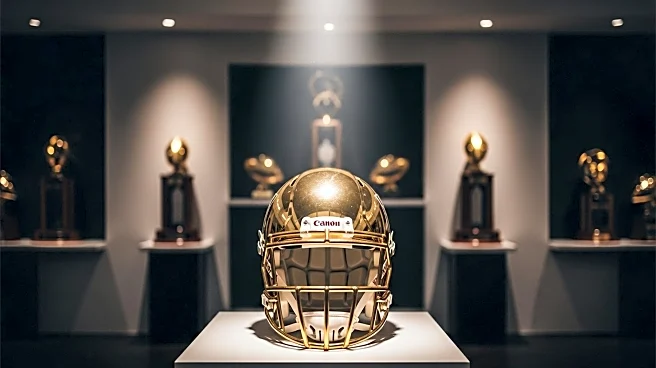What's Happening?
Bradford M. Freeman, a former Stanford University football player, has donated $50 million to the Cardinal football program, marking the largest individual gift in the program's history. Freeman, who graduated from Stanford in 1964, aims to support the football program specifically, as the team seeks to regain its competitive edge. Stanford has not qualified for a bowl game since 2018, and Freeman's donation is seen as a significant commitment to reviving the program's fortunes. The Cardinal has a storied history, with national titles in 1926 and 1940, and notable success from 2010 to 2016 under coaches Jim Harbaugh and David Shaw.
Why It's Important?
Freeman's donation is a major boost for Stanford's football program, which has struggled in recent years. The financial support could help the team improve facilities, recruit top talent, and enhance training programs, potentially leading to a resurgence in performance. The donation underscores the importance of alumni contributions in sustaining collegiate sports programs and highlights the role of private funding in shaping the future of college athletics. As Stanford seeks to return to its past glory, this financial injection could be pivotal in attracting new players and improving overall team performance.
What's Next?
Stanford's football program is likely to use Freeman's donation to enhance its infrastructure and support recruitment efforts. The team has already made strategic moves, such as hiring Andrew Luck as the football program's general manager, to leverage his expertise and leadership. As the Cardinal aims to improve its record, the donation could facilitate investments in coaching staff, player development, and competitive strategies. The program's progress will be closely watched by stakeholders, including alumni, fans, and potential recruits, as Stanford seeks to rebuild its reputation in college football.
Beyond the Headlines
Freeman's donation highlights the broader trend of alumni engagement in collegiate sports, where former players and successful business figures contribute to their alma mater's athletic programs. This philanthropic approach not only supports sports development but also fosters a sense of community and legacy among alumni. The donation may inspire other former players and alumni to invest in their university's sports programs, promoting a culture of giving and long-term support for collegiate athletics.











